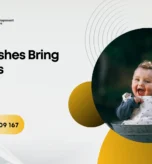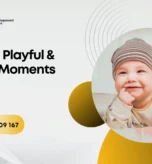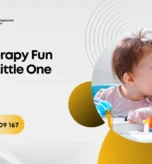Emotional development is a cornerstone of a child’s overall well-being. As children grow, they experience a range of emotions, from joy and excitement to frustration, fear, and sadness. Learning to understand, express, and manage these emotions is essential for building healthy relationships, developing resilience, and succeeding in life. However, not all children develop emotional skills at the same pace. Some may struggle with regulating their emotions or responding appropriately to challenges. This is where behavior therapy can play a transformative role.
Behavior therapy is a structured, evidence-based approach designed to help children understand their feelings, learn coping strategies, and develop positive behavior patterns. It has been especially effective for children dealing with behavioral challenges, emotional outbursts, anxiety, ADHD, autism spectrum disorders, and more. At DYU Child Development Centre in HSR Layout, behavior therapy is tailored to each child’s unique needs, empowering them to achieve emotional and social milestones in a supportive environment.
Understanding Behavior Therapy
Behavior therapy focuses on identifying and modifying negative behaviors by reinforcing positive actions. Rooted in the principles of Applied Behavior Analysis (ABA) and Cognitive Behavioral Therapy (CBT), it is widely recognized as one of the most effective interventions for managing emotional and behavioral difficulties in children.
The therapy involves working with trained professionals who assess a child’s behavior, identify triggers or patterns, and implement techniques to reshape responses. These techniques often include positive reinforcement, role-playing, modeling desired behaviors, and teaching coping mechanisms. Through consistent sessions and parental involvement, children gradually learn how to respond more appropriately to emotional situations. Parents seeking a child therapy center in HSR Layout or a pediatric therapy clinic in Bengaluru can greatly benefit from these structured interventions.
Emotional Growth Through Self-Awareness
One of the key benefits of behavior therapy is that it helps children develop self-awareness—a foundational element of emotional intelligence. Many children, especially younger ones, struggle to name or explain their feelings. Behavior therapists use visual aids, storytelling, and games to help children identify emotions such as anger, sadness, anxiety, or excitement.
As children learn to recognize their emotional states, they begin to make connections between feelings, thoughts, and actions. For example, a child may learn that they feel angry when they lose a game, and that their anger leads to yelling or throwing objects. With the therapist’s guidance, the child then learns healthier ways to respond, such as using calming techniques or expressing disappointment through words. Families looking for a child therapy center in HSR Layout can find support that fosters this essential self-awareness.
Learning Coping Strategies
Another critical aspect of emotional development is learning how to manage difficult emotions. In behavior therapy, children are taught a variety of age-appropriate coping strategies to deal with stress, frustration, and anxiety. These might include:
- Deep breathing and mindfulness exercises
- Taking a break or using a calm-down space
- Practicing positive self-talk
- Engaging in physical activity or creative expression
By integrating these techniques into daily routines, children gradually build the emotional regulation skills needed to navigate challenges at home, in school, and in social settings. These strategies are a core component of therapy at any trusted pediatric therapy clinic in Bengaluru.
Building Empathy and Social Skills
Behavior therapy also plays an important role in developing empathy and interpersonal skills, both of which are vital for emotional growth. Through group therapy sessions or social skills training, children learn how to take turns, listen actively, express their feelings respectfully, and understand others’ perspectives.
For example, role-playing scenarios—such as sharing toys or dealing with rejection—can help children practice positive responses in a safe, guided setting. Over time, they learn how to manage peer interactions with confidence and kindness, improving their social relationships and reducing feelings of isolation or frustration.
Whether you are looking for speech therapy for kids in HSR Layout or behavioral support, therapy programs at centers like DYU Child Development Centre are designed to nurture holistic development in a warm, child-friendly atmosphere.




